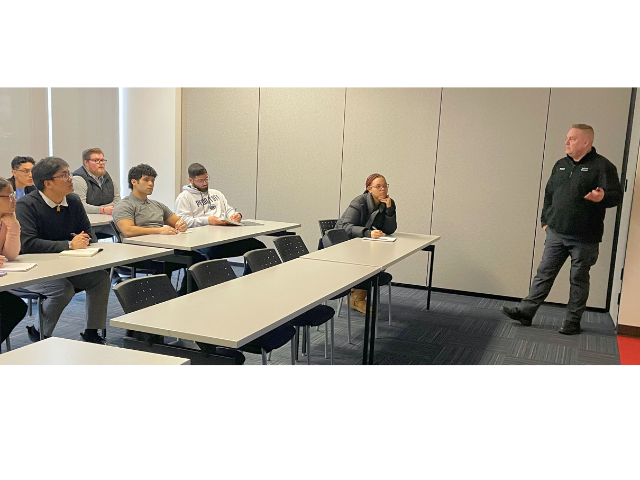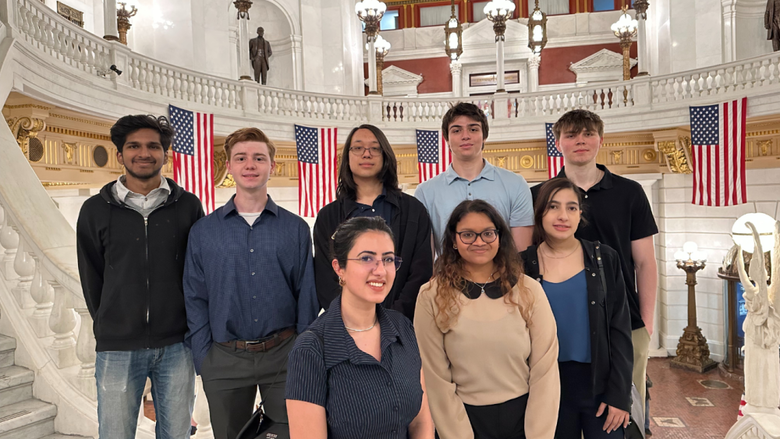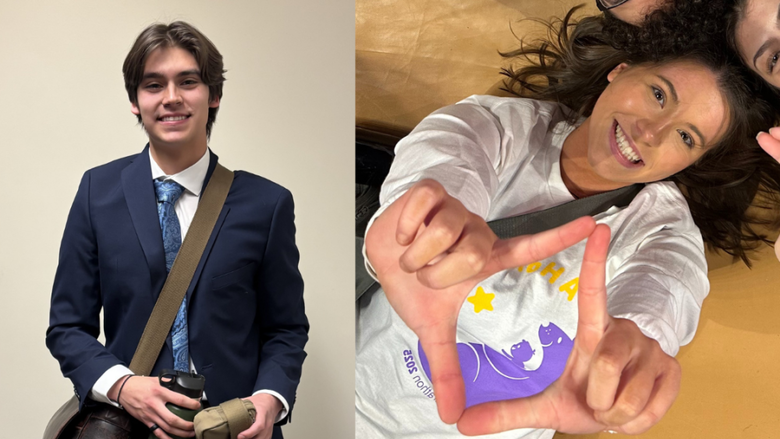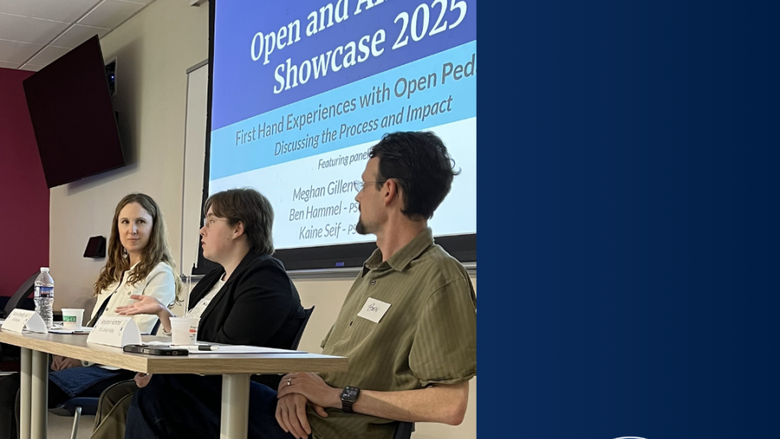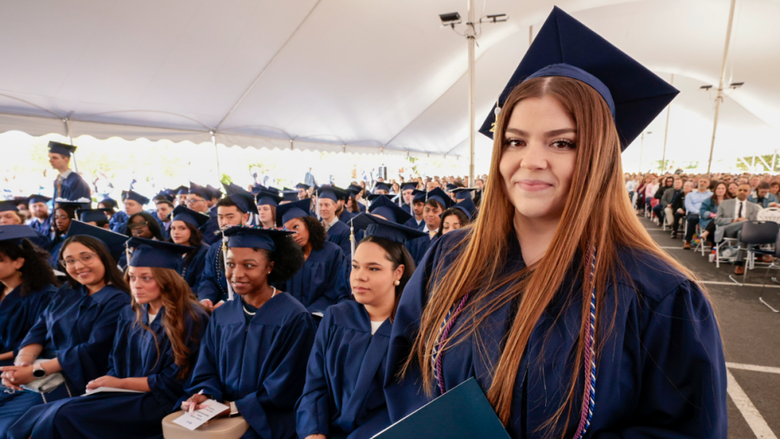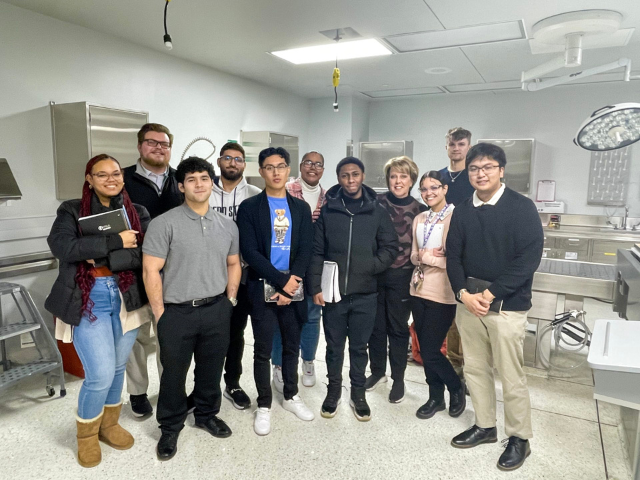
Students had the option to observe an autopsy. They learned the tools and techniques used to conduct a procedure and toured an autopsy bay.
CENTER VALLEY, Pa. — At Penn State Lehigh Valley, professors provide real life experiences to enhance classroom learning whenever possible. Most recently, 11 students in the "Violent Crimes" course taught by Debra Dreisbach, assistant teaching professor and criminal justice program coordinator, visited the office of Lehigh County Coroner Dan Buglio in Allentown and got a rare firsthand look at its daily operations.
Buglio and his staff talked with the students about the work they do and types of deaths they investigate.
“[Buglio] really walked us through what his office does. I learned some new things, too,” Dreisbach said. “His phone was constantly going off during our tour, which really showed how busy his office is.”
Coroners are widely associated with homicide deaths due to how they are portrayed in popular media, but Buglio said homicides were the smallest category of deaths his office investigated last year. According to statistics he shared with the class, in 2023 there were 417 natural deaths, 367 accidents, 50 deaths by suicides and 26 homicides in Lehigh County. Autopsies are required in certain circumstances to determine the cause of death. The students had the option to observe an autopsy during their visit.
“[Buglio] explained you need a pretty strong stomach for this type of work,” Dreisbach said.
During the presentation, Buglio presented a half dozen scenarios from real cases his investigators worked on. He asked the students questions to determine the cause of death based on different criteria.
“He said the body and its surroundings tell a story,” Dreisbach said. “He showed pictures from five or six different scenarios and showed how the body responded in those scenarios.”
Later, the students toured the autopsy bays and learned about the various tools and equipment used to conduct these procedures, as well as the response vehicles and ballistics units.
Dreisbach set up the tour to show students how the material they study in class applies in real world situations, as well as for them to meet industry professionals.
“I like getting students out into these workplaces so they can see them and talk to the professionals,” Dreisbach said. “The pictures in textbooks and what is shown on TV is so different from how the work is done in real life. It was an incredible learning experience — it added a new dimension to what we talk about in class.”
The tour introduced students to possible career paths within the criminal justice field. Buglio handed each student a business card and explained his office has an internship program.
“After the tour, we talked about what we’d seen and heard, and many of the students had no idea the office had investigators,” Dreisbach said. “This gave them another employment avenue to consider. The networking aspect is so important.”
For more information on Penn State Lehigh Valley's criminal justice program, contact Dreisbach at [email protected].
